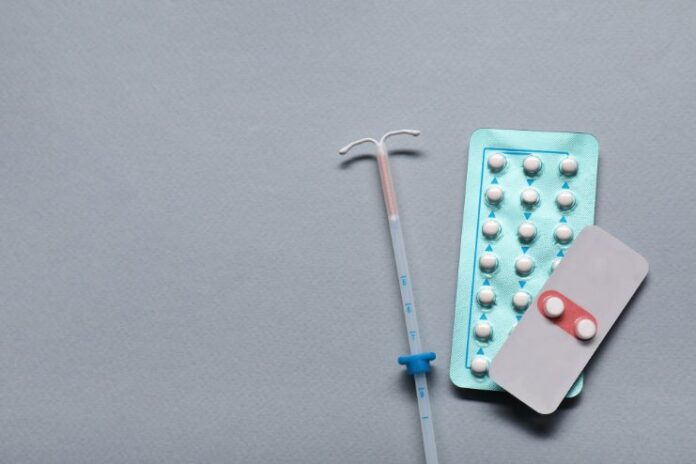Affiliate Disclaimer
Some links in this article are affiliate links. We may earn a small commission if you make a purchase through these links, at no extra cost to you. We only recommend products we find useful to our readersBirth control is often seen as just a way to prevent pregnancy, but its impact on women’s health goes far beyond contraception.
From easing painful periods to reducing the risk of certain cancers, birth control plays a vital role in overall well-being. Birth control methods range from using a condom to having Intra Uterine Devices (IUDs), oral contraceptive pills, or vaginal rings. These are a few common and popular birth control methods used by most women.
In this article, we’ll understand some surprising benefits of birth control and how it empowers women to take charge of their health. Beyond contraception, it serves as a tool for reproductive freedom, better health outcomes, and an improved quality of life for every woman. Let’s learn more about a few unexpected benefits of birth control.
Read More: 14 Ways To Lose Weight During Menopause – Don’t Let The Hormones Take Over
7 Surprising Benefits of Birth Control Beyond Contraception
You’ll be surprised to learn a few unexpected benefits of birth control. Here are some significant advantages:
1. Menstrual Cycle Regulation

One of the most valuable advantages of using birth control is how it regulates menstrual cycles. Not only that, but it also provides relief from irregular periods, cramps, and heavy menstruation. Birth control balances out hormonal changes and creates a more predictable and easy-to-manage cycle. In short, birth control makes life simpler and more comfortable for women.
A regulated cycle reduces the risk of anemia due to excessive blood loss and helps with overall reproductive health. This means efficiency at work, good sleep, and improved well-being. The outcome? Women feel more empowered about their bodies, have fewer cramps, and live healthier, more balanced lives.
Read More: Holistic Menstrual Health: Comprehensive Strategies for Easing Menstrual Discomfort
2. Acne Management
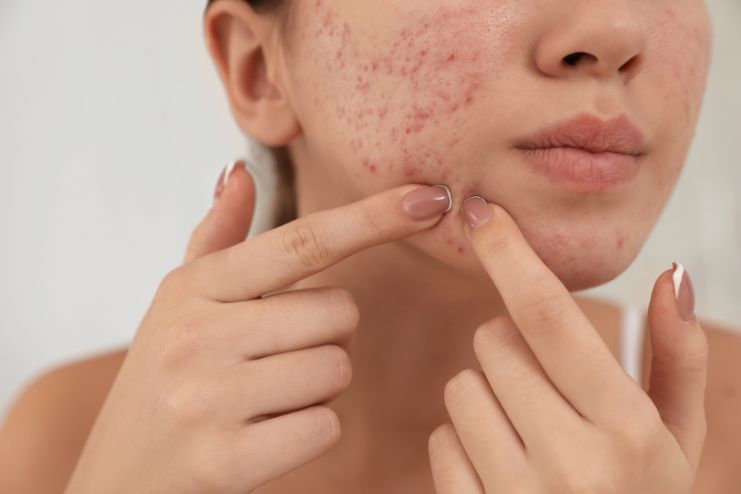
Hormonal birth control is a proven acne treatment, especially when hormonal imbalance is the root cause. By reducing androgen levels—the hormones responsible for excess oil production—birth control prevents sebum overproduction. This also helps prevent clogged pores and breakouts that are caused by oily skin.
It also regulates hormonal fluctuations, which tend to cause acne, especially in the premenstrual period. Some birth control pills have anti-inflammatory effects that protect your skin from severe acne and lesions.
In addition to its acne-fighting properties, hormonal birth control is also important for improving mental and emotional health. Chronic acne can hurt self-esteem and overall mental health, and birth control can help. By correcting hormonal imbalances, birth control not only improves physical appearance but also promotes quality of life.
Read More: All You Need to Know About Acne Face Map
3. Reduced Risk of Anemia

Certain birth control methods can significantly reduce the risk of anemia by helping to control heavy menstrual bleeding. Since excessive blood loss during periods is a major cause of iron deficiency, using birth control to lighten periods plays a crucial role in maintaining healthy iron levels.
Lighter periods mean less iron loss, which helps the body produce enough red blood cells to carry oxygen efficiently throughout the body.
Maintaining proper iron levels is essential for overall energy, focus, and well-being. By reducing the risk of anemia, birth control not only supports reproductive health but also improves overall health. Women who experience lighter periods often feel more energetic and are less likely to suffer from fatigue, weakness, and other complications linked to iron deficiency. This highlights how birth control provides benefits that extend beyond contraception, contributing to a woman’s overall health and quality of life.
4. Lowered Risk of Certain Cancers

Hormonal birth control provides substantial long-term health advantages, such as a reduced risk of some kinds of cancer. Studies have found that oral contraceptive pills, hormonal intrauterine devices, and injectable types of birth control can all decrease the likelihood of developing endometrial, ovarian, and even colorectal cancer.
This is almost entirely because of the control of hormones, which are the drivers of cancer. Below, let’s explore how birth control protects against these types of cancers.
Endometrial Cancer: Research shows that women who take oral contraceptives have a much lower risk of developing endometrial cancer. Birth control pills contain estrogen and progesterone, which prevent cancer cell growth by thinning the lining of the uterus.
The protective effect grows stronger with a longer duration and can persist for over a decade, even after discontinuation. Hormonal IUDs release small doses of progesterone and also help reduce the risk of endometrial cancer by keeping the lining of the uterus thin and stable.
Ovarian Cancer: Oral contraceptives reduce the risk of ovarian cancer significantly. Combined oral contraceptives (estrogen and progesterone) decrease the risk of ovarian cancer by as much as 50%, and the more years a woman uses them, the more protected she will be. This is because birth control pills inhibit ovulation, which decreases the frequency of exposure of the ovaries to hormonal fluctuations that may lead to cancerous alterations.
The progesterone-only injection (Depo-Provera) has also been associated with a decreased risk of ovarian cancer, particularly when used for longer than three years.
Colon Cancer: Emerging studies indicate that oral birth control could contribute to lowering the risk of colorectal cancer. While additional studies are required, research suggests that women who have used birth control pills have a slightly reduced risk of colon cancer than non-users. Scientists attribute this to hormonal control, which affects inflammatory reactions and cell growth in the gastrointestinal tract, possibly providing a protective effect.
Other Gynecological Cancers: In addition to reducing the risk of endometrial and ovarian cancer, combined oral contraceptives may also lower the risk of other gynecological cancers. According to FIGO, these pills help regulate hormone levels in ways that may prevent certain reproductive cancers. However, some studies suggest that long-term use of oral contraceptives could slightly increase the risk of cervical cancer, though this remains a subject of debate.
Read More: 10 Causes of Vaginal Cancer
5. Improved Quality of Life

Birth control promotes general well-being by providing women with greater control over their reproductive lives. This freedom leads to higher life satisfaction, less worry about unwanted pregnancy, and better mental health.
Since they can plan their future, women confidently pursue personal, educational, and career objectives. Moreover, birth control assists couples in developing stability in their relationship by enabling them to plan their family according to their situation and desires.
Key Advantages of Birth Control:
- Increased Independence: Women can make informed choices regarding their reproductive health, consistent with their life plans.
- Better Mental Health: Less stress and anxiety associated with unplanned pregnancies.
- Improved Relationships:Couples can plan their families according to personal and financial preparedness.
- Better Professional Life: The capacity to delay or space childbearing gives women greater freedom in their personal and professional lives.
- Overall Satisfaction: The feeling of control and security contributes to long-term happiness and overall well-being.
By offering security and flexibility, birth control is a major contributor to empowering people and the creation of a healthier, more balanced life.
6. Management of Menstrual Symptoms
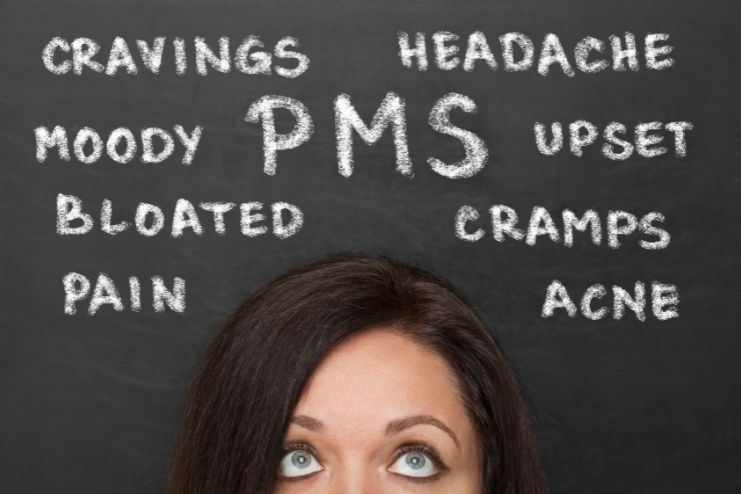
Birth control methods, especially hormonal solutions like intrauterine devices (IUDs) and oral contraceptives, bring significant menstrual relief, even in disorders like endometriosis and polycystic ovarian syndrome (PCOS).
Such disorders usually lead to extreme pain, irregular periods, and heavy flow, which tend to very much interfere with the way one lives daily. By balancing hormonal imbalances, birth control reduces these effects, resulting in a more comfortable and bearable menstrual cycle.
Key Benefits:
- Pain Relief: Eases cramping and discomfort related to menstrual disturbances.
- Hormonal Balance: Balances conditions such as PCOS and endometriosis by controlling hormone levels.
- More Predictable Periods: Reduces excessive bleeding and irregular periods.
- Improved Quality of Life: Allows one to resume daily activities without living in fear of debilitating menstrual symptoms.
Beyond contraception, birth control plays a vital role in women’s healthcare, offering a practical and effective solution for those struggling with debilitating menstrual symptoms.
If you wish to find some of the best menstrual products that’ll make your life easy, we have a list! Check these out:
Read More: How Golden Milk (Turmeric Latte) Can Help Regulate Your Period
1. Saalt Menstrual Cup – Reusable Period Cup
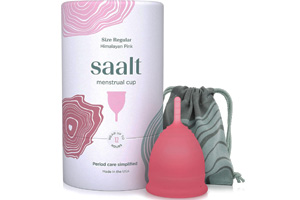
2. Tampax Radiant Tampons Multipack
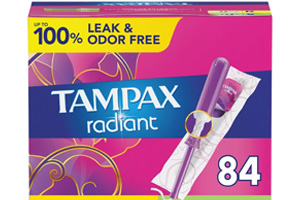
3. Always ZZZs Overnight Disposable Period Underwear

Conclusion
Birth control is much more than a method of contraception—it plays a crucial role in women’s health and well-being. From hormonal regulation and relief from menstrual disorders to reducing the risk of anemia and improving the overall quality of life, its benefits are significant. Understanding these advantages highlights the importance of considering birth control as an essential part of holistic healthcare.
Informed decisions regarding contraception can have a positive impact on a woman’s physical, mental, and emotional well-being. For medical purposes, personal health, or planning a family, choosing the appropriate method gives women control over their health.
Speak with a healthcare provider today to determine the best birth control method for you.
-
Feb 2024Written by Ankita
-
Apr 2025Edited by Vaishnavi
References
- https://www.chop.edu/news/health-tip/managing-menstruation-hormonal-contraceptives
- https://www.yourperiod.ca/normal-periods/birth-control-and-your-period/
- https://www.healthline.com/health/birth-control/birth-control-methods-your-period
- https://www.ncbi.nlm.nih.gov/pmc/articles/PMC6369862/
- https://www.webmd.com/skin-problems-and-treatments/acne/birth-control-for-acne-treatment
- https://www.ncbi.nlm.nih.gov/pmc/articles/PMC5015761/
- https://www.medicalnewstoday.com/articles/326473
- https://www.healthline.com/health/best-birth-control-for-acne
- https://www.webmd.com/sex/birth-control/other-benefits-birth-control
- https://pubmed.ncbi.nlm.nih.gov/12266720/
- https://www.pandiahealth.com/resources/anemia-birth-control/
- https://www.ncbi.nlm.nih.gov/pmc/articles/PMC8807863/
- https://www.komen.org/breast-cancer/risk-factor/birth-control-pills/
- https://www.mdanderson.org/publications/focused-on-health/birth-control-pill-and-cancer-risk.h28Z1590624.html
- https://www.cancer.gov/about-cancer/causes-prevention/risk/hormones/oral-contraceptives-fact-sheet
- https://www.kff.org/womens-health-policy/issue-brief/womens-sexual-and-reproductive-health-services-key-findings-from-the-2020-kff-womens-health-survey/
- https://www.ncbi.nlm.nih.gov/books/NBK235086/
- https://www.ncbi.nlm.nih.gov/pmc/articles/PMC6136733/
- https://www.medicalnewstoday.com/articles/birth-control-for-endometriosis
- https://www.brighamandwomens.org/obgyn/infertility-reproductive-surgery/endometriosis/medical-treatment-for-endometriosis
- https://www.ncbi.nlm.nih.gov/pmc/articles/PMC6094524/
- https://www.uptodate.com/contents/polycystic-ovary-syndrome-pcos-beyond-the-basics












